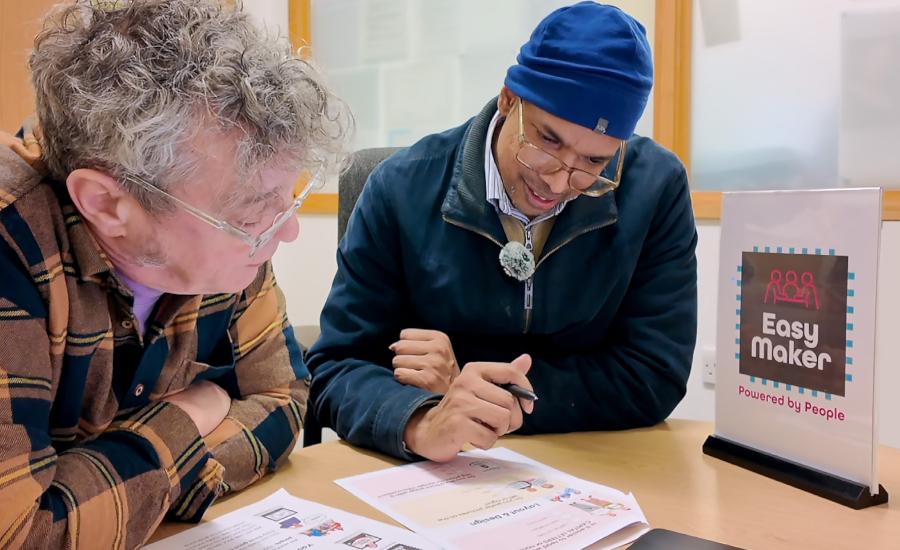In a “breakthrough” for accessible design, UK-based organisation Photosymbols has launched EasyMaker, a new AI-powered tool created in collaboration with people with learning disabilities.
Built around real-world needs, EasyMaker converts complex information into easy read formats in minutes: combining clear language and tailored images into accessible formats, including PDF, audio, Plain English, mobile, and web.
Photosymbols says the easy read format, which combines clear language with supportive visuals, is widely recognised as essential for accessible communication, particularly in health, education and public services.
Holly Yuille, Content and Operations Manager at Photosymbols, said: “Some people told us they’d given up looking for easy read versions of everyday information because it so rarely arrived when they needed it. We know that people with learning disabilities are often left out of developing technology, even when it could have a big impact on their lives.
“With EasyMaker, we’ve tried to tackle both of those problems. We’ve worked closely with people to explore how AI can help close the information gap, and also how they want to be represented – in both the language and images EasyMaker creates. It’s an ongoing process. As EasyMaker grows, so will our relationship with the people at the heart of it.”
With the launch of EasyMaker, Photosymbols believes the pace and scale of Easy Read creation could be transformed.
Photosymbols says at the heart of EasyMaker is a purpose-built AI model developed over the past year, shaped directly by input from more than 100 people with learning disabilities. Their insights helped define how the system simplifies language, structures content, and visualises meaning.
A key feature is the tool’s custom image generator, trained to produce realistic, meaningful images for thousands of everyday topics.
Karl Seymour, Director at Photosymbols, added: “AI presents incredible opportunities for improving how we share information – but only if it’s built with inclusion at its core. What we’ve developed with EasyMaker isn’t just an interface or a shortcut; it’s a system grounded in lived experience, refined through ongoing input, and guided by practical application.
“A lot of our technical focus went into making something that works intuitively, but also respectfully; from how the AI simplifies language to how it generates images that are relevant, realistic, and free from distractions. We weren’t interested in generic output. We wanted to create something that responds to the specific communication needs of people with learning disabilities and evolves with them.
“This is a step towards a future where accessible formats aren’t an afterthought, but a default. We hope EasyMaker proves that AI can be more than efficient, it can be equitable, too.”
OrCam Technologies introduced an AI assistant to its OrCam Read 3, an assistive reading device that functions as a handheld reading companion, smart magnifier, and stationary reader.
The post New AI tool for people with learning disabilities converts information into easy read formats appeared first on AT Today – Assistive Technology.

